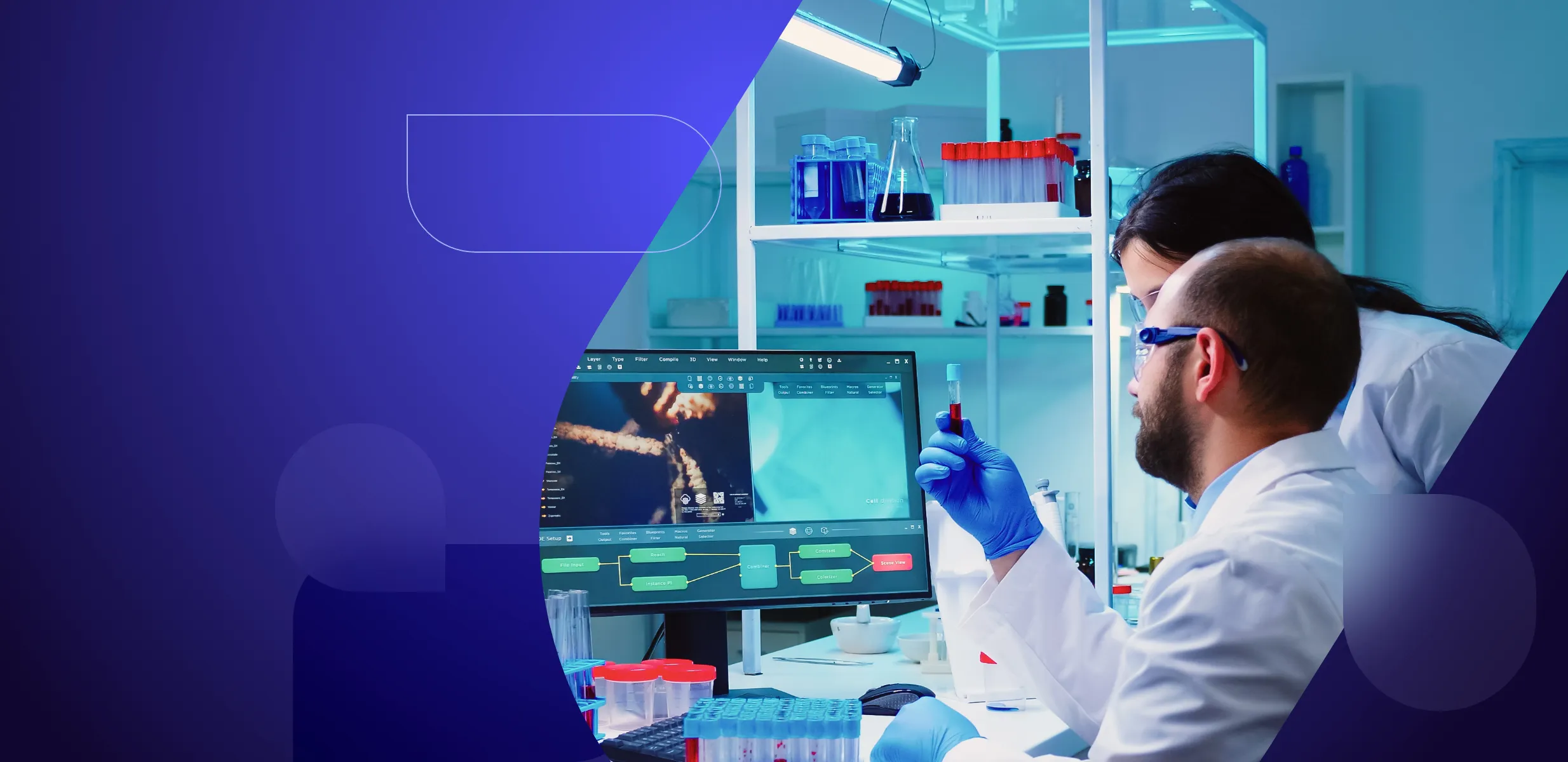
The top 5 industries where digital disruption is looming

The world around us is changing as we speak, with digital innovations affecting practically all aspects of our lives. New methods and tools for production, food supply, security, financial services, healthcare - and everything in-between - are continuously being invented and implemented.
Businesses must recognize how digital disruption can affect them and ride its wave rather than being swamped by it in this dynamic landscape. To this end, acknowledging the risks and possibilities that digital innovations can bring in the different industries is crucial.
Some of the most vulnerable to digital disruption fields include critical infrastructure and manufacturing, healthcare, law enforcement and security, cybersecurity, and fintech.
Let’s take an in-depth look at how each of the benefits from the sweeping digital changes - and how to get on the winning side of the Austrian economist Joseph Schumpeter’s term ‘creative destruction’.
Law enforcement and security
Digital disruption is affecting the area of public security and law enforcement too. New software solutions supply police officers and various other security service providers with the right tools to conduct their work more quickly and productively.
For example, large databases and mobile solutions that make use of them are already in use in many areas of law enforcement, forensics, predictive policing, and digital investigation. Officers can access critical crime data on the go from their mobile devices - even in the middle of a mission - without having to return to the central headquarters. They can also use in-depth information on incidents, suspects, and reports from a centralized database.
Still, embracing digital innovations is not always smooth in the public security field. It requires proper staff training and gradual implementation, as well as risk assessment.
Healthcare
Digital innovations are driving the changes in the healthcare sector in recent years, including telemedicine, on-demand healthcare, AI-powered diagnosing, and prevention, among many others. New technologies enable healthcare practitioners to deliver medical services faster, more effectively, and more precisely.
Automation makes processes quicker and frees up the time of healthcare specialists for the actual diagnostics and treatment. The latter are also improved with the help of advanced scanning and analysis tools.
Beyond automation, UX modernization is also key for fueling innovation in all industries, including healthcare. For example, updating older systems with contemporary UX can help healthcare professionals with easier and more effective access to critical patient data.
At the same time, digital disruption can also be tricky - especially if security and privacy issues are not considered from the start. Management of electronic health records and protection of personal data are paramount in the healthcare field, as well as errors prevention.
Cybersecurity
The growth of everything digital has brought new security challenges for companies and individuals across the globe - those of cyber protection. As we use innumerable digital tools in our daily work and personal lives, a whole new field of safety issues arises.
Protecting critical business and private data is crucial, and digital disruption across all other industries makes this an ever-more pressing matter. It only takes checking some of the biggest hacks of 2021, such as the attack against the critical fuel infrastructure of the Colonial Pipeline, the ransomware attacks against the global food processing company JBS and the insurance provider CNA, to realize the scale and power at which we need cybersecurity today. In each of these incidents, companies had to pay millions in ransomware to gain back access to their data and suffered major supply chain disruptions that affected whole countries.
Some of the digital disruption areas that require new methods for cyber protection include cloud services, microservices, APIs, and edge computing, among others. When it comes to cloud services, it’s important to verify that our systems are up-to-date. Digital innovation is leading the way, but it seems security needs to follow it very closely.
Critical infrastructure and manufacturing
With workers at assembly lines already replaced by industrial robots, infrastructure and manufacturing are among the main fields where digital disruption is looming. According to Gartner, a major driving force is competition - which pushes manufacturing companies to embrace digital transformation to stay ahead of their peers.
New technologies have transformed logistics and inventory management, but 3D printing brings a whole new dimension to the actual production process. It’s widely entering the automotive field as a production-grade material. Instead of 3D printing serving only as a prototyping tool, it’s becoming the main production method for various key parts.
Similarly, building and maintaining critical infrastructure - from roads through pipelines and everything in-between - now needs proper digital innovation to face new security challenges and meet present-day demands for operational speed and power.
Fintech
Services in the financial sector have been fully transformed in the last decade. Digital tools are widely used by businesses and private users alike to tackle all kinds of financial tasks - from daily payments and banking to high-level wealth management. According to a McKinsey report, 40% of U.S. financial decision-makers say they have a minimum of one fintech account.
Due to structural and regulatory limitations, fintech still relies on traditional banking in many respects - but this seems highly likely to change in the coming years. Decentralized finances (DeFi), cryptocurrencies, and blockchain are the most prominent innovations that are cracking the status quo in the industry.
Fintech startups seem to be just getting started. Tech companies and banks form new types of partnerships, with the latter getting displaced from their traditional role as the center of payment flows. With these grassroots changes, regulatory frameworks also seem bound to change.
Master digital disruption with the help of a trusted partner
Irrespective of your industry - be it manufacturing and infrastructure, fintech, security, cybersecurity, or healthcare - you’re much better off in meeting the digital future with a trusted partner on your side.
Resolute Software has a large portfolio of software solutions tailored for the needs of different companies in all types of industries. We will provide you with the best tools you need to ride the digital disruption wave.
If you’re ready to get started, just get in touch with us today to learn how our software experts can assist your company’s digital innovation.



